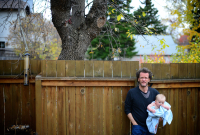Support strong Canadian climate journalism for 2025
“There is no good answer for how to be a woman.”
This simple but bang-on phrase read early on in Rebecca Solnit’s The Mother of All Questions is a glimpse of the overarching theme of her latest book, a thought-provoking and concise social commentary that tackles a wide range of subjects that all fall under the arc of feminism.
Solnit's essays examine topics such as women's long-awaited broken silence, the role of men in the feminist movement, and contemporary rape culture with a fierceness that made me wish I'd read her work much sooner.
'Ghost libraries' of untold stories
The longest essay in the book focuses on the suffocating silence forced upon women by suppressing women’s rights, as well as their ability to “speak up, to participate, to experience oneself and be experienced as a free person with rights.” Solnit mentions key writers and activists throughout the 20th century who advanced the feminist movement and strived to break the silence that had oppressed women for generations before. She quotes poet Muriel Rukeyser’s iconic lines, “What would happen if one woman told the truth about her life? The whole world would split open.” And this is exactly what happened — women began openly speaking about their lives. Solnit is quick to credit social media and Twitter hashtag campaigns for inspiring women to openly discuss the difficulties they face both publicly and privately.
This broken silence is evident through the social, legal, and political recognition of serial rapists and sadists who used to “rampage through the decades,” wearing their celebrity status as a kind of invisibility cloak. This essay all but broke my heart — the silence forced upon women meant dozens of victims of powerful men endured their trauma secretly and silently, outshone by their abusers’ status and forced into the shadows.
Solnit notes how women’s voices can now “end a powerful man’s reign,” specifically referencing Bill Cosby, Jimmy Seville, and Jian Ghomeshi, whose celebrity statuses once acted as shields against rape or sexual assault allegations. But as the voices of their victims grew louder, society began to listen. As Solnit so eloquently writes, “if libraries hold all the stories that have been told, there are ghost libraries of all the stories that have not.” Society is redefining whose voice is valued, and this marks a crucial achievement where it is now the victim’s voices who are being heard over those of powerful public figures. I just hope that one day, one victim’s voice will be enough.
Reading The Mother of All Questions only left me with a few unanswered ones I wish Solnit had addressed. When she writes, “there is always someone struggling to find the words,” I imagine she is referencing minority women, members of the LGBTQ2 community and especially Indigenous women, who face a disproportionate amount of danger from male violence. In a book that so heavily discusses sexual violence and its traumatic effects on women, Solnit did not adequately address minority groups and how often they face these dangers. She does mention that missing and murdered Indigenous women matter just as much as women who are assaulted by celebrities, but addressing how disproportionately the problems of rape and murder affect this particular group would have added to her commentary.

Celebrating social media
As previously mentioned, Solnit celebrates social media and Twitter campaigns for creating a platform where women can openly discuss their experiences and come together as an act of solidarity. She specifically praises the #yesallwomen campaign after the horrifying Isla Vista shooting for creating a space for women to talk about their experiences with male violence. However, I think it is important to note that social media campaigns can only go far so — Twitter consistently acts as a feedback loop, offering minute soundbytes in 140 characters or less.
While I cannot deny the strength that social media gives to female voices, those voices are too easily lost in an endless stream of status updates and disgusting remarks from “trolls.” Call me old-fashioned, but Twitter cannot replace the invaluable voices real women have on the streets, in protests, in government and testifying before the courts.
We must not allow social media to be the most important channel with which to voice our opinions and beliefs; nothing can replace the effect that our physical presence, not our online personas, have on change.
Digging into gender identity and rights
In the essay, The Pigeonholes When the Doves Have Flown, Solnit addresses the changing nature of gender roles and identities.
She writes that “in contemporary parlance, sex is biological and gender is socially constructed; the first is in your pants and your genes, the second is in your mind.” She briefly mentions how this generation is dismantling the system of behaving according to your gender, but I wish she had discussed the implications that the growing issue of gender identity has on cisgender women.
A recent case in Toronto highlighted this very issue when a transgender woman requested admittance to a women’s-only spa and was refused. The spa was mercilessly attacked on social media for being “transphobic,” but this is one instance of many to come where the rights of trans individuals need to be balanced with the rights of women. It is a safety and psychological issue; on average, one in three women will experience sexual assault in their lifetime (as Solnit duly notes) and women should have the right to certain spaces in which they feel safe.
Feminist writer Meghan Murphy writes in her commentary for CBC that the spa in question, Body Blitz, does allow for full-frontal nudity. As such, it is reasonable for women visiting the spa to assume that they will not see male genitalia, which may be a trigger for some victims of male violence. Considering how prevalent violence is against women, in my view, it is crucial that women maintain the right to have spaces free from male bodies, even if the individuals inside those bodies identify as women.

I found it interesting that Solnit spends a lot of time discussing the severity of male violence against women, yet fails to address the potential for trans rights to encroach on women’s rights. The Body Blitz fiasco is one example of that encroachment. Of course, trans individuals should never be subjected to discrimination, but the rights of cisgender women should not be sacrificed in the name of that protection. Later in the book, Solnit mentions a trans man giving birth to a child, celebrating that she never thought she’d get the chance to write “his uterus,” without addressing the biological fact that only women can give birth to children. There is a growing social disconnect between biological sex, of which there are two, and gender identities, of which there are many.
This growing disconnect matters in the wake of Bill C-16 being passed in the Senate — a bill aimed at preventing discrimination against trans individuals by protecting 'gender identity' and 'gender expression' under Canada's human rights and criminal codes. This bill is a stepping stone to allowing trans women access to cisgender women-only spaces such as bathrooms, change rooms, shelters, etc. — all places which traditionally offer women spaces away from men. This sex-based separation was designed to protect women from male violence, and now it seems the onus is shifting onto women to leave these spaces lest they be accused of discrimination.
The difference between sex and gender is crucial — the two sexes are biological realities whereas gender is a social construct. The Mother of All Questions could have benefitted from Solnit’s insight into this complicated issue that will continue to be at the forefront of many social debates to come.
Blaming women for reproduction
My personal favourite essay of the collection is The Case of the Missing Perpetrator. In this poignant, almost perfect essay, Solnit examines the U.S. Center for Disease Control’s laughable “Guidelines to Alcohol Consumption,” which cites "unintended pregnancy" as a risk when women consume too much alcohol. This seems to me to deny the existence of men, implying that pregnancy is the consequence of “consorting with booze, not boys,” as the essay states. Perhaps the CDC should be reminded that women become pregnant through intercourse with a penis and sperm, not by drinking glasses of pinot noir.
The Case of the Missing Perpetrator aptly discusses the removal of men's roles from pregnancy, and subsequently discusses women’s access (and lack thereof) to abortions. This debate enrages me to my core — the right to women’s bodies is not up for public debate, and I should not have to explain that every woman has the fundamental right to access safe abortion, as well as the right to make those kinds of decisions in accordance with her own faith and values.

Remember politician Todd Akin claiming that women do not get pregnant from "legitimate rape”? I am still speechless that such an asinine comment ever left his mouth. Such comments from politicians demonstrate time and time again that women have no value beyond the fetuses in their wombs.
Solnit writes, “I wish all this telling women alcohol is dangerous was a manifestation of a country that loves babies so much it’s all over lead contamination… carcinogenic pesticides…and the need for universal healthcare and daycare and good and adequate food. You know it's not.”
This paragraph speaks the ultimate truth: pro-lifers will fight endlessly to force a woman to carry a child to term, yet many will do nothing to help her or her child once the baby is born. It is the ultimate hypocrisy: a society that apparently values life so much that to abort a baby is unthinkable, yet simultaneously devalues life so much that millions of people do not have access to any social security, healthcare, nutrition, or even a home to live in. Case in point: pro-life President Donald Trump is poised to cut millions of people from having access to healthcare and social security — many of them women.
What this collection of essays does is shed light on the feminist movement, its beginnings and its achievements, while reminding us that there is so much more that society must accomplish. This is a book that I wish everyone would read. Rebecca Solnit reminds us that we have broken our silence and must continue to make noise. In the immortal words of songstress Helen Reddy: "I am woman, hear me roar."





Comments
Thank you, Katie Kalmusky. This very fine review makes me ready to head for the bookstore and pick up a copy of Solnit's essays.
I think that in reviewing a book one shouldn't move other than very guardedly into forays like :" Solnit did not adequately address minority groups" or "I wish she had discussed...". The absence of material you would have wanted may simply mean that a single book can't be an exhaustive final word. Editing and publishers' requirements necessarily preclude "the works" on any topic, let alone the interrelated several here. This must be why one book leads to another, and another.
Thank you again for this overview.
It should not be surprising that cisgender women are expected to permit their own rights, including comfort levels, to be ignored in favour of others. That's what women have been expected to do in every culture forever. Don't think, for a moment, that anything much has changed in the last century. Nothing that we have gained should be seen as a given.